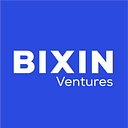Portfolio Insights — Switchboard
The Future of Permissionless Oracles
Why do we need a permissionless oracle?
Oracles are one of the key components of web3 infrastructure stack that act as a bridge between on-chain and off-chain worlds. Various forms of off-chain data such as market price feeds, exchange rates, weather information and more can be queried by oracles to obtain information into smart contracts. The use of oracles is paramount in ensuring that there are real world use cases for blockchain and ultimately onboard more non-crypto native users.
On top of the layer 1s, it is crucial that the infrastructural layer (besides oracles, also RPC nodes, storage and more) be as decentralized and permissionless as possible. This is because permissionless infrastructure allows anyone to participate and access information without any gatekeepers and censorship. Due to high cost of implementation for data feeds, most oracle services in the market currently have a more permissioned model whereby the core team has to curate and approve data feeds.
This means that most protocols have to use currently available data feeds from oracles as it is. They are not able to customize the data feeds to their specific needs and this may decrease the efficiency for protocols because they have to process the data separately. For example, an options protocol may need to settle prices based on the Time Weighted Average Price (TWAP) in order to protect the protocol from price manipulation.
Ultimately, this shows that oracles are not meant to be a one-size-fits-all model. There is an urgent need for oracles that allow for greater customizability and a lower barrier to entry for setting up data feeds according to their needs. This is where Switchboard plays an important role in ensuring a better oracle model that is both permissionless and accessible.
How does Switchboard work?
There are a few stakeholders in the system working to provide accurate data feeds for protocols to use. Mainly, Curators, Publishers, the DAO and Oracles. The diagram below shows how they work together to collect and publish data, as well as their incentive mechanisms.
What sets Switchboard apart?
- Permissionless Data Feeds
Unlike other oracles which rely on a centralized committee to approve new data feeds, Switchboard allows the DAO to vote on the data feeds they want to see. This allows the community to have a say in which data feeds are important to them and ensure that protocol resources are used efficiently.
- Highly Customizable
You can read this deep dive to fully appreciate the extent of customizability that Switchboard offers. In simple terms, Switchboard allows a protocol to specify the number of oracles assigned to each update request and also the minimum number of oracle feeds that have to respond before accepting a result on-chain. For instance, a protocol can dictate that the data is obtained from 10 sources and a minimum of 8 sources must respond before the result is accepted as valid. This process differs from the other oracle providers as the sources are already chosen from trusted market participants. This tradeoff might result in a faster latency rate for other oracles but it makes no guarantees on the number of sources that responded.
- Easy for Developers
Switchboard is also aimed at making the lives of developers easier. Instead of going through layers of contacts to build a generic data feed, on Switchboard’s Publisher, a developer can construct their own data feed within minutes using low-code UI and achieve full customizability and management over their own feeds. This greatly reduces the friction that developers have to go through just to establish a data feed.
- Multipurpose Data Feeds
Most oracle designs have been focused on providing financial data such as price feeds for assets. However, Switchboard is much more versatile, allowing for any kind of data to be published on-chain. Some interesting applications include an NBA feed and a feed to track the number of people in space. The possibilities are endless, as long as data sources exist for the data type.
- Composable Data Feeds
As one of the core features of DeFi, composability allows for different protocols to interact with each other, providing greater choice and use cases for users. Switchboard builds on that by allowing data feeds to reference other data feeds, even from other protocols. For example, Switchboard feeds could be configured to source for data from Pyth or ChainLink, or even any exchanges directly. Users can then use this data to their needs however they wish.
- First and only oracle with VRF on Solana
Various aspects of DeFi require randomness to function, which is difficult to do on-chain due to transparency of the blockchain. Thus, off-chain computation is key to publish random numbers on-chain. One of the most popular methods of random number generation is Verifiable Random Function (VRF), initially pioneered by Algorand. Switchboard was the first to bring VRF to Solana, and even managed to do it fully on-chain. This will ensure fairness in NFT launches, gambling and gaming but at the same time allow for anyone to verify the proof on-chain.
The future roadmap of Switchboard
Having focused on the permissionless aspect, the future of Switchboard will be aimed towards greater decentralization with community governance via the Switchboard DAO. Switchboard will continue to tweak and improve curation incentives to ensure the versatility and customizability of their data feeds. While latency is a potential tradeoff with the Switchboard model, they will be finetuning this process to further reduce latency for protocols in the future.
Most notably, Switchboard will be going multi-chain — unlocking even more feeds from different chains like Aptos, Sui and NEAR, improving the interoperability within the web3 ecosystems. This is also to attract more developers into the ecosystem as Switchboard will empower and make it easier for them to build protocols using low-code UI that reduces friction for all.
We look forward to working with Switchboard in the future to continue building towards a true permissionless and decentralized future for oracles.
